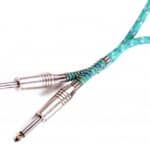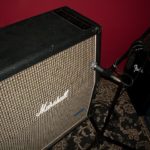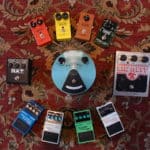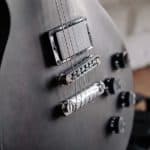The tone is a relevant aspect to consider when making music.
Well, the truth is that any aspect related to sound will be of pivotal importance for a musician.
Something as trivial as the type of cable you play with will create a noticeable difference in your music.
But this is not just a matter of cables, but also a matter of not using cables at all as well!
To be more precise, we’re referring to the wireless guitar system. You know, that system in which the guitar is not connected directly to the amp with a cable.
Wireless systems are fantastic, but do they affect the tone that much?
Wireless systems affect tone, but the difference tends to be minimal. This is more noticed with low-quality systems, which poorly convert the digital signal back to analog. Bear in mind that even normal cables affect tone, especially if they are too long.
Now, if you’re hesitating whether to stick with one option or the other, then stop worrying.
We have covered a lot of information regarding these two guitar systems, including advantages, disadvantages, and how much they affect tone in reality.
How do wireless guitar systems work?
The wireless system works rather simply: it has a receiver and a transmitter.
The transmitter relies on the guitar. This transmitter transforms the guitar’s analog signal into a digital one.
That digital signal is transmitted through the receiver. The receiver decodes the signal and transforms it again into analog when it comes out through the amp.
So, to sum it up, it works like this:
The transmitter in a guitar receives an analog signal;
The signal is converted to digital;
The digital signal travels through the air to the receiver;
The receiver decodes the signal;
The receiver transforms the signal into analog again;
The signal passes through an amp.
That’s it! Pretty simple, hu?
Why do some players avoid wireless systems?
More often than not, you’ll find guitarists sticking with the classic wired system, instead of choosing the wireless one.
Although this occurs because of a preference toward wired systems, it can also be a rejection of wireless ones.
In other words, some musicians believe that the wireless guitar system has too many disadvantages in comparison with the standard.
First of all, wireless systems can fail if there’s a sort of interference between the transmitter and the receiver. Luckily, this tends not to be the norm, since most modern wireless systems have more than one antenna.
This is great because more antennas mean that the device will work with the one that receives the strongest signal. In other words, it’s almost impossible to struggle with interference.
Nonetheless, it’s something to be aware of, and for many, a worthy reason not to work with wireless systems.
Another main disadvantage is the fact that wireless systems require the use of batteries. This brings two problems.
First of all, batteries tend to run out of power, so you’ll end up buying batteries regularly.
Of course, guitar cables break every now and then, but they tend to last months or even years. Batteries, on the other hand, need to be replaced after a couple of months (depending on how much you use them).
The other problem related to batteries is that, once again, they run out of power.
No, we’re not talking about spending more money on brand-new ones. We’re talking about running out of power in the middle of a performance!
This is indeed a case situation that every guitarist would like to avoid. Thus, some guitarists prefer to rely on a more trustworthy cable, that will work no matter what.
Lastly, consider that, if you have a wide set of guitars, then you’ll need a wide set of wireless systems. This, of course, has some easy solutions.
Consider that you can have both a wireless and a wired guitar, and simply use both. Also, you can switch the transmitter from one guitar to the other, but this will be time-consuming and is not recommended for live performances.
Oh, yeah, and there’s also the tone issues. Let’s analyze the topic in a more detailed way.
Do wireless guitar systems really affect tone?
A fact is a fact, and wireless systems may affect your tone.
Pay attention. We said may, not will.
After all, analog wireless systems compress the dynamic audio’s range. This may lead to a critical reduction in the audio quality.
However, this is only the case with low-cost systems, which compress the signal poorly.
On the other hand, good-quality systems make it harder to notice the difference between wireless and non-wireless.
We could argue that, due to this logic, many guitarists prefer playing with a wired guitar system. Otherwise, they end up changing their tone.
However, this is not totally true, because wired systems also affect tone.
To be more precise, the longer the guitar cable, the weaker the electrical signal, and the more the tone is affected.
As you see, both systems affect the tone, but it depends on the characteristics of that system.
All in all, a wireless system interferes with the tone, but the difference is, for the most part, too little to notice.
Reasons to use a guitar wireless system
Wireless guitar systems are a great addition to your gear collection.
Consider that a wireless system provides more freedom of movement than a guitar cable.
This is fantastic for musicians who love moving, jumping, and running through the stage during live performances. Of course, being tied to your guitar amp will undoubtedly restrict your freedom a bit.
Not to mention, one avoids tripping over a cable. You know, the more you move while playing the more prone you are to stumble across your cable and disconnect it or fall to the ground.
Sounds silly, but those musicians who just cannot stay calm on stage know what we’re talking about.
Oh, sure, and remember that cables are also a pain in the neck at the time of untangling them.
Additionally, consider that having a wireless system means not having a long cable. This is important because, as we previously mentioned, long guitar cables affect tone.
Sure, wireless systems affect tone as well, but if your device is of high quality, you can expect almost no difference at all.
Talking about tone and sound, another reason to stick with a wireless guitar system is that these won’t present ground loops. After all, if the guitar cable is not properly wired, it can create unwanted noise.
Last but not least, a wireless system is safer. Indeed, working with a plugged instrument involves working with electricity.
More often than not, the risks of receiving an electrical shock are minimal. But of course, a wireless system reduces that probability even more.
Reasons to stay with a traditional cord
One of the reasons why some guitarists prefer the old traditional method is, well… tradition!
Bear in mind that playing guitar goes beyond the music you create. It is also how you create it.
Tradition creates a sense of belonging and security. It’s a way to keep a healthy connection with the past.
Naturally, innovation is as important as tradition. One cannot think that the old methods will always work.
Change is a constant in this life, and we shouldn’t stick so strictly to one method.
However, the opposite is also true: keeping traditions alive is not a crime either.
Some musicians prefer playing with a cord just because. Maybe they got used to it for so many decades that the mere thought of using a wireless system feels off, and that’s okay.
You may argue that it’s pointless. Why stick to uncomfortable wire systems if you have the chance of using a wireless one?
Well, traditions are rather pointless, to be honest. Cheering before having a drink, for example, does not make a significant change in the long run, or in the way the drink tastes.
But who cares? It’s fun, and it provides a sense of belonging.
Maybe guitarists who play with wired systems feel connected to the Guitar Heroes of the golden decades of rock music.
Now, another reason to stick with traditional cables is price. If you aim to play guitar only with a wireless system, then I do hope you’ve got some extra cash in your pocket.
Unfortunately, wireless systems are more expensive than the other option. Guitar cables, on the contrary, are relatively cheap.
And don’t forget, they are cheaper in the long run too, since a wired system won’t require paying for batteries regularly.
Also, we could argue that standard cables are “simpler.” After all, it’s just a matter of plug-and-play.
So, which one do you prefer?

Hello there, my name is Ramiro and I’ve been playing guitar for almost 20 years. I’m obsessed with everything gear-related and I thought it might be worth sharing it. From guitars, pedals, amps, and synths to studio gear and production tips, I hope you find what I post here useful, and I’ll try my best to keep it entertaining also.





